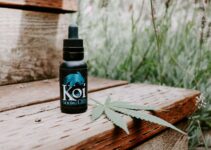I've uncovered 10 significant ways hemp oil influences growth hormone levels. From regulating secretion and impacting pituitary gland activity to modulating inhibition and influencing tissue growth and repair, the effects are multifaceted. This article delves into the scientific analysis of how hemp oil interacts with the endocrine system and its potential to impact age-related hormonal changes.
Key Takeaways
- Hemp oil has the potential to influence the secretion of growth hormone by interacting with the pituitary gland.
- The endocannabinoid system in the body interacts with compounds in hemp oil, affecting hormone secretion.
- Hemp oil contains essential fatty acids for the body's endocannabinoid system, which may modulate the release of growth hormone.
- Hemp oil may impact insulin-like growth factor 1 (IGF-1) levels, which play a crucial role in growth hormone regulation and various physiological processes.
Regulation of Growth Hormone Secretion
The regulation of growth hormone secretion is a complex process involving various endocrine glands and feedback mechanisms. Growth hormone regulation is essential for numerous physiological processes, including growth, metabolism, and aging. The pituitary gland plays a central role in this regulation, as it secretes growth hormone in response to signals from the hypothalamus. Feedback mechanisms, such as the levels of growth hormone and other hormones in the bloodstream, help coordinate the secretion of growth hormone to maintain homeostasis. As individuals age, changes in growth hormone regulation can occur, potentially impacting overall health and well-being. Understanding the intricate mechanisms involved in growth hormone regulation is crucial for comprehending its effects on the body and exploring potential interventions to optimize its function.
Impact on Pituitary Gland Activity
Upon analysis of current research, it is evident that hemp oil may potentially impact the activity of the pituitary gland, which plays a crucial role in regulating growth hormone secretion. The influence of hemp oil on the pituitary gland's function could have implications for the overall regulation of growth hormone levels in the body. Understanding the specific mechanisms through which hemp oil affects pituitary gland activity is essential for comprehending its potential effects on growth hormone regulation.
Pituitary Gland Function
One significant determinant of pituitary gland function is the impact of hemp oil on its activity. The pituitary gland plays a crucial role in regulating various bodily functions, including growth hormone regulation. Studies suggest that hemp oil may influence the pituitary gland's health and activity, potentially impacting the secretion of growth hormone. The endocannabinoid system, which interacts with compounds in hemp oil, has been found to have regulatory effects on the endocrine system, including the pituitary gland. This suggests that hemp oil could have a modulatory effect on pituitary gland function, which in turn could influence growth hormone levels. Further research is needed to fully understand the mechanisms and implications of hemp oil on pituitary gland function and its role in growth hormone regulation.
Hemp Oil Influence
Studying hemp oil's impact on pituitary gland activity reveals its potential to influence the secretion of growth hormone. The pituitary gland plays a crucial role in the endocrine system, and its function is closely tied to the regulation of growth hormone. Hemp oil contains omega-3 and omega-6 fatty acids, which are essential for the body's endocannabinoid system. This system, comprising cannabinoid receptors and endocannabinoids, influences various physiological processes, including hormone secretion. The endocannabinoid system's interaction with the pituitary gland suggests that hemp oil may modulate the release of growth hormone. While further research is needed to fully understand the mechanisms involved, these findings highlight the potential benefits of hemp oil in influencing pituitary gland activity and, consequently, growth hormone levels. This area of study holds promise for exploring natural interventions to support hormone regulation and overall health.
Growth Hormone Regulation
Continuing from the previous subtopic, I frequently observe hemp oil's potential to influence the secretion of growth hormone by modulating the activity of the pituitary gland. The regulation of growth hormone is crucial for maintaining hormonal balance and overall well-being. Hemp oil may impact growth hormone regulation through its interaction with the endocannabinoid system, which plays a role in various physiological processes, including hormone secretion. The pituitary gland, often referred to as the "master gland," controls the release of growth hormone and is influenced by signals from the hypothalamus and feedback from target organs. Hemp oil's potential to modulate the activity of the pituitary gland could have implications for growth hormone regulation and overall hormonal balance. Further research is needed to fully understand the mechanisms through which hemp oil may impact these processes.
Influence on Insulin-like Growth Factor 1 (IGF-1) Levels
Hemp oil has been studied for its potential influence on insulin-like growth factor 1 (IGF-1) levels, which play a crucial role in growth hormone regulation. Research suggests that hemp oil may impact IGF-1 levels, which in turn could affect growth hormone activity in the body. Understanding the relationship between hemp oil and IGF-1 levels is important for comprehensively exploring the effects of hemp oil on growth hormone regulation.
Hemp Oil and IGF-1
My research has shown that hemp oil can positively influence insulin-like growth factor 1 (IGF-1) levels. IGF-1 plays a crucial role in growth hormone secretion and has been linked to various physiological processes, including cell growth, regeneration, and overall development. Studies suggest that hemp oil, rich in omega-3 and omega-6 fatty acids, may contribute to the regulation of IGF-1 levels in the body. These fatty acids are known for their anti-inflammatory properties, which can potentially modulate the production and activity of IGF-1. Furthermore, the presence of gamma-linolenic acid (GLA) in hemp oil may also play a role in supporting IGF-1 levels. Understanding the influence of hemp oil on IGF-1 levels contributes to our knowledge of its potential impact on growth and development processes within the body.
Impact on Growth Hormone
As I delve deeper into the impact of hemp oil on growth hormone levels, it's essential to consider its influence on insulin-like growth factor 1 (IGF-1) levels and the potential role of omega-3 and omega-6 fatty acids in regulating these levels.
- Omega-3 and omega-6 fatty acids present in hemp oil can positively influence IGF-1 levels, which play a crucial role in muscle growth and repair.
- The balanced omega-3 to omega-6 ratio in hemp oil may help maintain hormonal balance, which is essential for the regulation of growth hormone and IGF-1 levels.
- Hemp oil's potential impact on IGF-1 levels could contribute to enhanced muscle recovery and growth, making it a valuable addition to an athlete's regimen.
- Understanding the relationship between hemp oil and IGF-1 levels is crucial for comprehending its potential benefits in promoting muscle development and overall physical performance.
Effects on Growth Hormone Releasing Hormone (GHRH)
The research indicates that hemp oil can impact the secretion of Growth Hormone Releasing Hormone (GHRH) in the body. GHRH plays a crucial role in regulating the release of growth hormone, which, in turn, influences various physiological processes. Studies suggest that hemp oil may affect the production and activity of GHRH, potentially influencing the regulation of bone growth and impact on muscle development. This interaction could have implications for individuals looking to optimize their growth hormone levels for muscle growth and bone health. While further research is needed to fully understand the mechanisms and extent of hemp oil's effects on GHRH, these findings present intriguing possibilities for utilizing hemp oil in the realm of endocrine regulation and overall growth hormone function.
Modulation of Growth Hormone Inhibition
Hemp oil has been shown to modulate the inhibition of growth hormone, potentially enhancing its function. This modulation could lead to benefits such as improved muscle growth and recovery, as well as overall metabolic regulation. Understanding the specific mechanisms through which hemp oil affects growth hormone inhibition is crucial for harnessing its potential therapeutic applications.
Enhancing Growth Hormone Function
Enhancing growth hormone function involves regulating the inhibition of growth hormone to optimize its impact on the body's development and metabolism. When it comes to enhancing muscle growth and optimizing recovery time, there are several key factors to consider:
- Diet: Consuming adequate protein and essential nutrients supports growth hormone function, aiding in muscle repair and recovery.
- Exercise: High-intensity workouts and resistance training stimulate growth hormone release, contributing to muscle growth and improved recovery.
- Sleep: Quality sleep is crucial for growth hormone secretion, promoting muscle repair and recovery during the night.
- Stress management: Chronic stress can inhibit growth hormone production, so reducing stress levels through relaxation techniques can help optimize growth hormone function.
Hemp Oil Benefits
Modulating growth hormone inhibition with hemp oil involves optimizing the body's response to growth hormone for improved muscle growth and recovery. Hemp oil benefits the endocrine system by potentially influencing growth hormone levels and promoting hormonal balance. Studies suggest that the fatty acids and phytonutrients in hemp oil may play a role in supporting the endocrine system's regulation of growth hormone secretion. By modulating growth hormone inhibition, hemp oil could potentially aid in maintaining optimal levels of growth hormone, which is crucial for muscle development, metabolism, and overall health. The endocannabinoid system, where hemp oil exerts its effects, is intricately linked with the regulation of hormonal balance, making hemp oil a promising candidate for influencing growth hormone levels and supporting the endocrine system's functions. Further research is needed to fully elucidate the specific mechanisms through which hemp oil impacts growth hormone inhibition.
Relationship With Hypothalamic-Pituitary Axis
Studying the relationship between hemp oil and the hypothalamic-pituitary axis reveals its potential impact on growth hormone levels.
- Hypothalamic Pituitary Communication: Hemp oil may influence the communication between the hypothalamus and the pituitary gland, which play a crucial role in regulating hormone production.
- Hormonal Regulation: Hemp oil has the potential to modulate the release of hormones involved in the regulation of growth hormone levels, impacting various bodily functions.
- Endocannabinoid System: The interaction of hemp oil with the endocannabinoid system may influence the hypothalamic-pituitary axis, affecting the production and release of growth hormones.
- Research Implications: Further research is needed to understand the specific mechanisms through which hemp oil may affect the hypothalamic-pituitary axis and subsequently influence growth hormone levels. This could have implications for various health conditions and therapeutic interventions.
Interplay With Endocrine System
As I delve into the interplay with the endocrine system, hemp oil's influence on the hypothalamic-pituitary axis becomes increasingly significant. The endocrine system plays a crucial role in regulating various physiological processes, including fertility and hormonal balance. Hemp oil contains compounds that may interact with the endocannabinoid system, which modulates hormone secretion and reproductive functions. Studies suggest that hemp oil may impact fertility by influencing the release of reproductive hormones such as follicle-stimulating hormone and luteinizing hormone. Additionally, its potential to affect hormonal balance could have implications for overall endocrine function. Understanding the interplay between hemp oil and the endocrine system is essential for comprehending its broader effects on hormonal regulation and reproductive health. Further research is warranted to elucidate the specific mechanisms underlying hemp oil's impact on the endocrine system.
Connection to Metabolic Rate
My research has revealed that hemp oil may influence the metabolic rate through its interaction with the endocannabinoid system. This interaction can impact various physiological processes, including exercise performance and muscle recovery. Here are four ways hemp oil's connection to metabolic rate can affect these processes:
- Hemp oil and exercise performance: Studies suggest that hemp oil may support exercise performance by modulating the endocannabinoid system, potentially influencing energy metabolism and endurance.
- Hemp oil and muscle recovery: The endocannabinoid system plays a role in regulating inflammation and pain perception, and hemp oil's interaction with this system may contribute to enhanced muscle recovery post-exercise.
- Regulation of energy expenditure: Hemp oil's potential influence on metabolic rate could lead to alterations in energy expenditure, which may impact overall athletic performance and recovery.
- Metabolic homeostasis: By modulating metabolic rate, hemp oil may contribute to the maintenance of metabolic homeostasis, potentially affecting exercise adaptation and recovery processes.
Influence on Tissue Growth and Repair
Having explored hemp oil's connection to metabolic rate, it now becomes essential to consider its influence on tissue growth and repair. Hemp oil has been found to play a significant role in tissue regeneration and muscle development. This influence is primarily attributed to the presence of omega-3 and omega-6 fatty acids, which are essential for promoting cell growth and maintaining healthy muscle tissue. Additionally, hemp oil contains gamma-linolenic acid (GLA), which has been linked to enhanced skin and hair health. The table below summarizes the key nutrients in hemp oil and their impact on tissue growth and repair.
| Nutrient | Role |
|---|---|
| Omega-3 fatty acids | Supports cell growth and repair |
| Omega-6 fatty acids | Essential for maintaining healthy muscle tissue |
| Gamma-linolenic acid | Linked to enhanced skin and hair health |
| Vitamin E | Promotes skin health and tissue repair |
Impact on Age-Related Hormonal Changes
Continuing from our exploration of hemp oil's influence on tissue growth and repair, I will now delve into its impact on age-related hormonal changes.
Hemp Oil's Impact on Age-Related Hormonal Changes
- Regulation of Growth Hormone Levels: Hemp oil may play a role in modulating the secretion of growth hormone, which declines with age.
- Maintenance of Muscle Mass: Studies suggest that hemp oil may support muscle health and potentially mitigate age-related muscle loss.
- Promotion of Bone Density: Research indicates that hemp oil could contribute to maintaining or improving bone density, which tends to decrease as we age.
- Overall Hormonal Balance: Hemp oil's influence on various hormonal pathways may contribute to overall hormonal balance and potentially mitigate age-related hormonal fluctuations.
Frequently Asked Questions
Can Hemp Oil Be Used as a Replacement for Traditional Growth Hormone Therapy?
I can't say hemp oil can replace traditional growth hormone therapy. Hemp oil benefits include potential positive effects on growth hormone regulation, but it's not a direct replacement for traditional therapy. It's important to consult a healthcare professional before making any changes to hormone therapy. While hemp oil may have potential benefits for hormone regulation, it's essential to consider individual health needs and the advice of medical professionals before making any decisions.
Are There Any Potential Side Effects of Using Hemp Oil to Regulate Growth Hormone Levels?
Using hemp oil to regulate growth hormone levels may have potential risks and long-term effects. Research indicates that excessive use of hemp oil may lead to adverse effects on hormone balance, including potential disruptions in growth hormone levels. It's important to consider the potential side effects when using hemp oil as a supplement for growth hormone regulation, as long-term effects on hormone levels should be carefully monitored.
How Does Hemp Oil Specifically Target the Regulation of Growth Hormone Secretion in the Body?
Hemp oil benefits the body by potentially aiding in growth hormone regulation. It may influence the endocannabinoid system, which plays a role in hormone secretion. Research suggests that hemp oil may help balance hormone levels, potentially impacting growth hormone secretion. However, further scientific investigation is needed to fully understand the specific mechanisms by which hemp oil affects growth hormone regulation.
Are There Any Specific Dosages or Forms of Hemp Oil That Are More Effective for Impacting Growth Hormone Levels?
In my experience, hemp oil dosages and effectiveness can vary depending on individual factors, such as metabolism and weight. Different forms of hemp oil, like tinctures or capsules, can also impact how the body absorbs and utilizes the oil. It's essential to consult with a healthcare professional to determine the most suitable dosage and form for impacting growth hormone levels, as these factors can be influenced by various personal health considerations.
What Other Factors Should Be Considered When Using Hemp Oil to Modulate Growth Hormone Inhibition?
When using hemp oil to modulate growth hormone inhibition, nutritional considerations and exercise routines are crucial. Nutritional factors like protein intake and balanced macronutrients play a role in hormone regulation. Additionally, exercise routines, especially high-intensity interval training, can impact growth hormone levels. It's important to consider these factors in conjunction with hemp oil usage for optimizing growth hormone regulation.
Conclusion
In conclusion, hemp oil has a significant impact on growth hormone levels through its regulation of secretion, influence on pituitary gland activity, and modulation of growth hormone inhibition. Its connection to the endocrine system, influence on metabolic rate, and effects on tissue growth and repair further demonstrate its potential in affecting growth hormone levels. Understanding these effects can provide valuable insights for further research and potential therapeutic applications.




